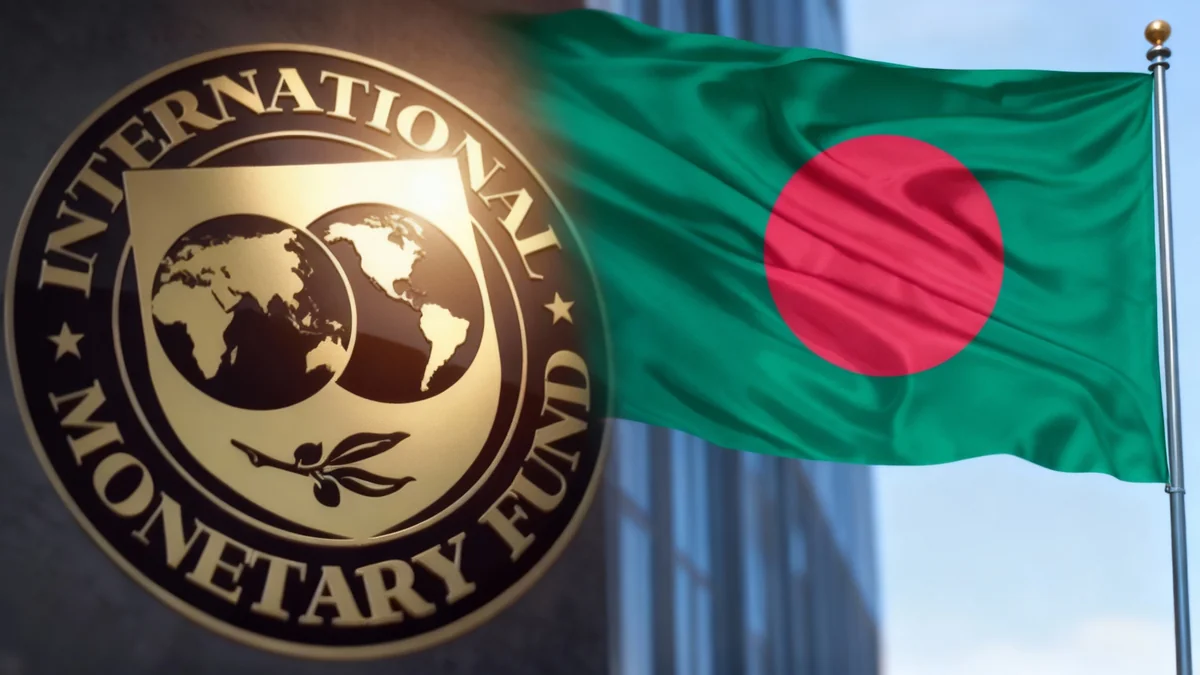The International Monetary Fund (IMF) has raised significant concerns about the stability of Bangladesh's banking sector, questioning the continued operation of nearly two dozen banks facing severe capital deficits. During a recent meeting in Dhaka, an IMF delegation challenged why these institutions continue to pay salaries and bonuses despite substantial losses and a growing volume of non-performing loans (NPLs).
The discussions, held with senior officials from Bangladesh Bank, have brought to light a staggering capital shortfall that exceeded Tk1.55 lakh crore as of June 2025, placing the country's financial regulatory framework under intense international scrutiny.
Key Takeaways
- The IMF has expressed concerns over a capital shortfall in Bangladesh's banking sector that has surpassed Tk1.55 lakh crore.
- Officials questioned why 24 banks with capital deficits are permitted to pay salaries and bonuses while incurring losses.
- Bangladesh Bank defended its strategy of merging weak banks rather than pursuing liquidation, a path the IMF views with skepticism.
- A separate debate emerged over the country's foreign exchange market, with the IMF suggesting it is not fully free-floating despite official claims.
Capital Crisis Deepens in Banking Sector
The financial health of Bangladesh's banking system has become a focal point of recent talks between the government and the IMF. Data from Bangladesh Bank reveals a troubling trend: the total capital shortfall across the sector surged to over Tk1.55 lakh crore by the end of June 2025. This represents a significant increase from the Tk1.10 lakh crore recorded in the previous quarter.
Out of 61 scheduled banks operating in the country, 24 have failed to meet the mandatory minimum capital requirements. This group includes four state-owned commercial banks, two specialized government banks, and a surprising 18 private commercial banks, indicating that the problem is widespread and not confined to the public sector.
By the Numbers
- Total Capital Shortfall: Exceeded Tk1.55 lakh crore (as of June 2025)
- Banks Failing Requirement: 24 out of 61
- Breakdown: 4 state-owned, 2 specialized, and 18 private banks
During a meeting chaired by Bangladesh Bank Deputy Governor Zakir Hossain Chowdhury, IMF representatives directly questioned the sustainability of these struggling institutions. They asked why banks with high NPLs and deep capital deficits were not being liquidated to protect the financial system's integrity.
Liquidation vs. Mergers A Point of Contention
In response to the IMF's push for more decisive action, Bangladesh Bank officials defended their current strategy. They explained that bank liquidation is an uncommon practice in the country's financial history. Instead, the central bank has initiated a merger program for five struggling banks and is overseeing capital restoration plans for others.
The goal, according to central bank officials, is to allow these institutions a path to gradual recovery. However, the IMF delegation expressed doubts about the effectiveness and timeline of these prolonged plans. They argued that allowing weak banks to operate indefinitely is not a sustainable solution and urged regulators to establish a clear framework for either successful restructuring or eventual liquidation.
The Debate Over Non-Performing Loans
Central bank officials also addressed the rising tide of NPLs. They claimed that no newly issued loans had defaulted in the past year. The current crisis, they argued, is a legacy issue stemming from risky loans approved during a previous government's tenure, which were already problematic when issued.
This explanation highlights the long-term challenges embedded within the financial system, which current policies are struggling to resolve at a pace deemed acceptable by international observers.
Disagreement Over Foreign Exchange Market
The scrutiny from the IMF extended beyond banking solvency to the country's foreign exchange policies. In a separate meeting with Bangladesh Bank Governor Ahsan H Mansur, the IMF team asserted that the exchange rate regime does not yet operate as a fully free-floating market.
Governor Mansur firmly rejected this assessment, defending the central bank's position.
"We are in a completely free-floating position – there is no intervention in the market."
The IMF delegation countered by asking why the central bank was actively purchasing US dollars if the market was truly independent. Governor Mansur explained that this is a common practice for economies heavily reliant on exports and remittances, citing Japan as an example. He stated that with import demand slowing, banks held excess foreign currency, and the central bank's purchases were necessary to maintain market stability.
Loan Rescheduling Policies Under Review
Another area of concern for the IMF was Bangladesh's new loan rescheduling policy. The delegation noted the absence of a "cooling-off period" for restructured loans. This means that once a loan is rescheduled, it can be immediately reclassified as performing, potentially masking the borrower's underlying repayment risks.
The IMF suggested implementing a monitoring period to assess a borrower's ability to meet the new terms before upgrading the loan's classification. While acknowledging that the current rules lack such a provision, Bangladesh Bank officials contended that their lending policies for defaulters are already stricter than those in many other countries.
One senior official stated that the framework was designed to reflect the specific economic realities of Bangladesh. According to the official, the IMF delegation was broadly in agreement with this perspective, suggesting a potential area of compromise between the two parties as they continue their dialogue on financial reforms.





